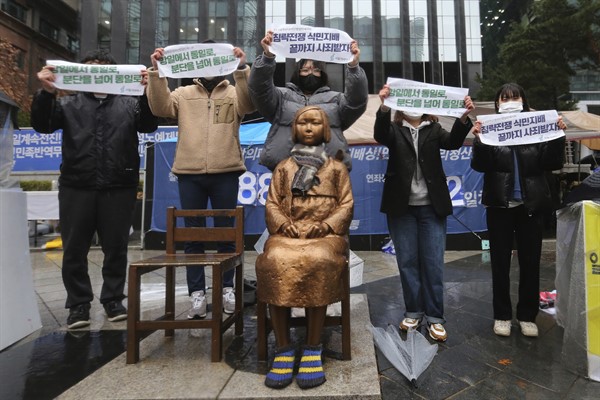For East Asia analysts, writing about the long-tortured relationship between Japan and South Korea presents a certain descriptive challenge. How often can stock phrases like “all-time low” or “worst-ever” be re-used? Is it possible to be “at a nadir” more than once? And how, given the protracted downward spiral in ties between the two U.S. allies over the past three years, are we to know when things have truly “hit rock bottom”?
If a recent South Korean court ruling is any indication, we may be about to find out. Last week, lawyers representing a group of South Koreans who say they were forced to work without compensation for Mitsubishi Heavy Industries during Japan’s 1910-1945 colonial rule won a court order to seize a $723,000 payment owed to Mitsubishi Heavy by a South Korean manufacturing firm, LS Mtron. The payment would be used to compensate the plaintiffs for damages they were awarded under a 2018 South Korean Supreme Court decision, which Mitsubishi Heavy has thus far ignored.
The order by the Suwon District Court will likely be subject to further legal wrangling, as LS Mtron has said it owes the payment not to Mitsubishi Heavy Industries but to one of its group affiliates, Mitsubishi Heavy Industries Engine Systems. However, if that wrinkle is straightened out and the order is ultimately enforced, it could have far-reaching consequences. The Japanese government’s principal spokesperson, Chief Cabinet Secretary Kato Katsunobu, warned last week that liquidation and seizure of Mitsubishi Heavy’s South Korean assets would have a “very serious” impact on bilateral relations, and urged Seoul to present a solution that would be acceptable for Tokyo. At the same time, an aide to South Korean President Moon Jae-in told reporters that the government is “having a close discussion with Japan to find reasonable ways to settle the issue, while taking into consideration the victims’ rights and the relationship of the two countries.”

